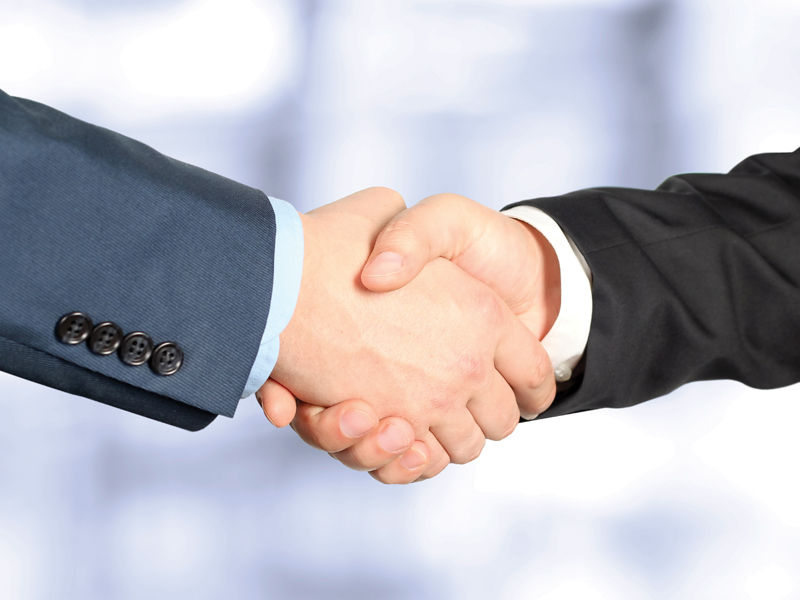The handshake is perhaps the most overlooked tool in a professional’s arsenal. As commonplace as name tags at a networking event, the power of the humble handshake should not be underestimated. But can something we never think twice about really be that complex?
Yes, says Shelley Smith, President of Premier Rapport, a business consulting firm. “You give out signals to the other person when you shake hands,” she explains. “You may have the best intentions in mind, but if your handshake is off you could make a bad first impression, and that is hard to change.”
Elizabeth Veliz, President and CEO of Adelante HR Consulting, LLC, agrees. “You transmit so much of yourself through a handshake,” she says. “Your confidence, credibility, knowledge and competence are all evident in the way you shake hands with people.”
The most dreaded type of handshake for both Smith and Veliz is a grip so loose it is nonexistent. Veliz refers to it as the “limp fish.”
“You never want to shake hands like that in business,” says Veliz. “Immediately you are communicating to the other person that you are self-conscious and unsure. For professional women, that could perpetuate corporate stereotypes.”
Smith agrees and feels women should make a conscious effort to shake hands firmly, especially with male colleagues. “If the other person has any preconceived notions about your gender, a poor handshake will just confirm them,” she says.
Dr. Ronald S. Jacobson, a life coach with a background in clinical psychology and owner of Jacobson’s Ladder, LLC, a company that provides life enrichment solutions, struggled with sweaty palms and worried about how others would perceive him, which in turn made him even more nervous. He has developed the habit of ducking into the restroom to wash his hands to make sure his palms are nice and dry before greeting people, but he also relies on positive self-talk and recommends it to others for conquering their nerves.
“If you lack confidence when meeting other professionals, act as if you are confident and that is how they will see you,” he says. “The end result will be what you want, even if internally it doesn’t feel that way.”
Hand shaking is not limited to job seekers and networkers. Handshakes are also vital for landing business deals, and a poor handshake could take you out of the running.
“Bad handshakes can send negative vibes,” says Veliz. “There have been times when I was so put off by someone’s handshake in a business deal that I actually felt the need to conduct more research about that person before making a decision. It made me wonder ‘What is this person hiding?’” Although Veliz has never backed out of a business deal because of a bad handshake, she does acknowledge those with lousy handshakes happened to be the most difficult to deal with.
What is the definition of a good handshake? For Smith a quick, firm shake is best. “When meeting someone new, be the first one to offer your hand,” she advises. “Don’t hesitate and don’t hold on too long.”
Jacobson echoes the importance of a firm grip, but warns against being too firm and running the risk of crushing the other person’s hand. “Focus on the behavior, not the emotion,” he says. “Make eye contact with the other person and smile.”
Veliz encourages everyone, whether they are C-suite executives or janitors, to develop and use a solid handshake. “The importance of the handshake in corporate America can’t be overstated,” she says. “It is a piece of the puzzle others are putting together to form an opinion of you, and you want to make sure you do it well.”

